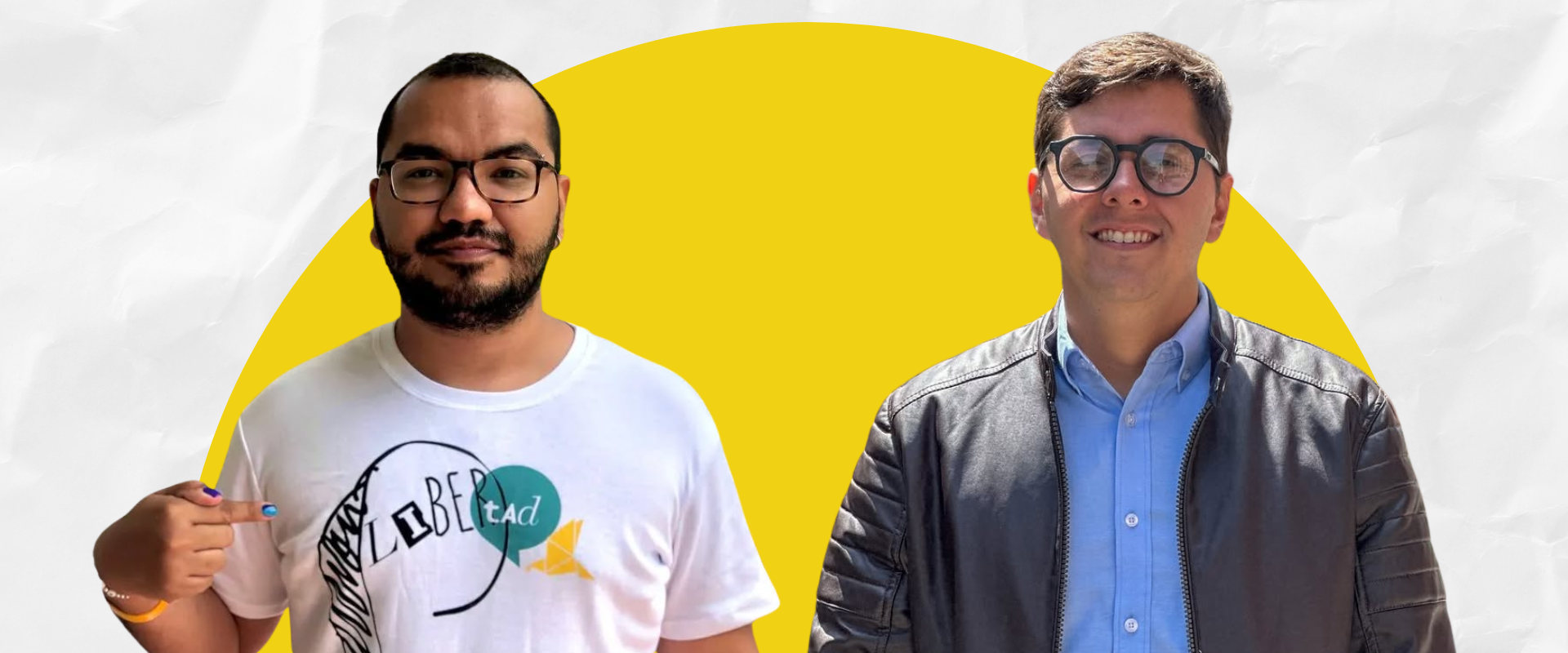We condemn the attack against Venezuelan human rights defenders Yendri Velásquez and Luis Peche, an example of transnational repression
This act of violence reflects the growing vulnerability faced by human rights defenders in the region. Race and Equality urges states and international organizations to take urgent measures to protect them.

Bogotá, October 14, 2025 – On Monday, October 13, 2025, Venezuelan activists Yendri Velásquez and Luis Alejandro Peche were victims of a shooting in northern Bogotá. Both were wounded in the legs and are recovering and out of danger. According to official information, three armed men intercepted them and shot them repeatedly before fleeing the scene. The Institute on Race, Equality, and Human Rights (Race and Equality) strongly condemns this attack, which represents a new case of transnational repression, a form of political persecution that seeks to silence those who defend human rights even beyond their borders.
“We are alarmed by the growth of transnational repression in Latin America: a practice that seeks to punish activism and silence critical voices, even in exile. This attack against Yendri and Luis violates not only their right to life, but also the collective right to defend human rights,” said Carlos Quesada, Executive Director of Race and Equality.
Yendri Omar Velásquez Rodríguez is a renowned Venezuelan LGBTIQ+ advocate and founder of the Venezuelan Observatory of LGBTIQ+ Violence. In 2024, he received the Human Rights and Rule of Law Award from the French and German embassies; but that same year, in August, he was the victim of state persecution when he was preparing to travel to Geneva to participate in a session of the UN Committee on the Elimination of Racial Discrimination. He was arbitrarily detained at Maiquetía airport and his passport was revoked. Weeks later, he was forced into exile in Colombia.
Luis Alejandro Peche Arteaga, 34, is an internationalist and political consultant. He was an advisor to the Venezuelan National Assembly between 2017 and 2018, during the opposition’s parliamentary presidency, and collaborated with citizen participation organizations such as Voto Joven. In 2025, he left Caracas after receiving threats.
This attack is part of a pattern of transnational violence that is becoming increasingly visible in the region. In June 2025, Race and Equality condemned the murder of retired Nicaraguan Army Major Roberto Samcam in San José, Costa Rica, an event that demonstrated that the persecution of critical and opposition voices transcends national borders.
Urgent call to the Colombian State
In this context, Race and Equality urgently and respectfully calls on the Colombian State to adopt immediate and effective protection measures, through the National Protection Unit, in order to safeguard the lives, integrity, and safety of Yendri Velásquez, Luis Peche, and their families. It also urges the Attorney General’s Office to conduct a prompt, thorough, and expeditious investigation to identify those responsible for planning and carrying out the attack and to ensure that there is no impunity.
Similarly, it calls on the authorities to coordinate actions with international organizations such as the Inter-American Commission on Human Rights (IACHR), the Office of the United Nations High Commissioner for Human Rights (OHCHR), and the UN Refugee Agency (UNHCR), with the aim of strengthening the institutional response and providing specialized support.
Race and Equality also calls on the State to strengthen national protection policies for defenders, journalists, and social leaders, incorporating an intersectional, differential, and gender-based approach that recognizes the multiple vulnerabilities faced by migrant and LGBTIQ+ defenders.
Finally, we urge the international community, social organizations, and civil society not to remain silent in the face of these events. We strongly condemn expressions of transnational repression in Latin America and the Caribbean, and we reaffirm our commitment to accompany and stand in solidarity with the victims of these acts of violence.
Protecting the lives of those who defend human rights is a collective commitment and a universal ethical obligation. Defending rights cannot continue to be a risk that is paid for with one’s life. Colombia and the entire region must be territories of refuge and hope, not spaces where fear and persecution are prolonged.

